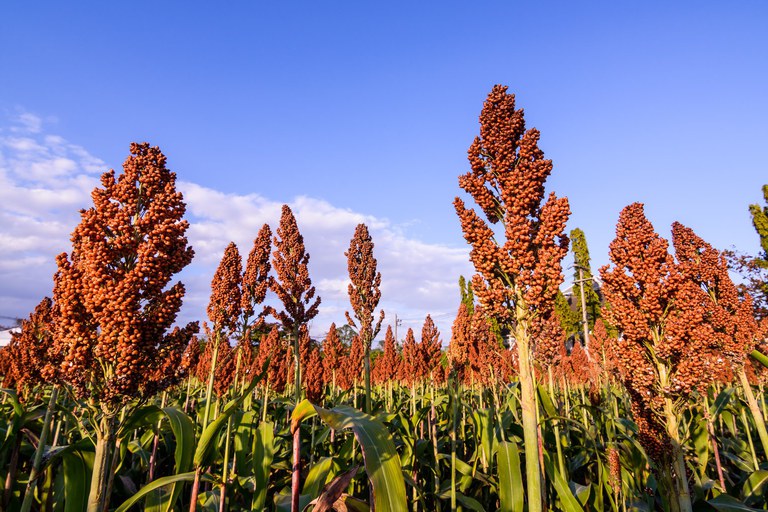Insect-deterring sorghum compounds may be eco-friendly pesticide
Problem
How do we protect plants from pests and pathogens without posing toxic risks to consumers?
Findings
Researchers discovered a group of naturally occurring compounds in sorghum--flavonoid phytoalexins--that act as natural pesticides and fungicides and studied the role of these compounds in the ability of plants to resist or deter pathogens and pests.
Impact
Through the understanding of plant genetics, this project is moving toward breeding sorghum and maize crops that use their own natural defenses to resist biotic stressors.
- This is a nontoxic, environmentally friendly solution.
- Use of these crops reduces the need for chemical pesticides.
Related Research Area: Advanced Agricultural and Food Systems
Research Credit
Team
- Surinder Chopra, Iffa Gaffoor, Sampurna Sattar, Cullen Dixon, Nadia Frock, Juliet Moen, Gary Thompson, Consuelo De Moraes, Mark Mescher, Rupesh Kariyat
Participating Departments
Federal and State Appropriations
- USDA NIFA Hatch Project PEN04613, Accession # 1010654
Emerging Discoveries
Published Research
Sorghum 3-Deoxyanthocyanidin Flavonoids Confer Resistance against Corn Leaf Aphid
-
Kariyat, R.R., Gaffoor, I., Sattar, S. , Dixon, C.W., Frock, N., Moen, J., De Moraes, C.M., Mescher, M.C., Thompson, G.A., & Chopra, S. (2019). Sorghum 3-Deoxyanthocyanidin Flavonoids Confer Resistance against Corn Leaf Aphid. Journal of Chemical Ecology, 45, 502–514. https://doi.org/10.1007/s10886-019-01062-8
Office for Research and Graduate Education
Address
217 Agricultural Administration BuildingUniversity Park, PA 16802-2600
- Email agresearch@psu.edu
- Office 814-865-3136
Office for Research and Graduate Education
Address
217 Agricultural Administration BuildingUniversity Park, PA 16802-2600
- Email agresearch@psu.edu
- Office 814-865-3136







